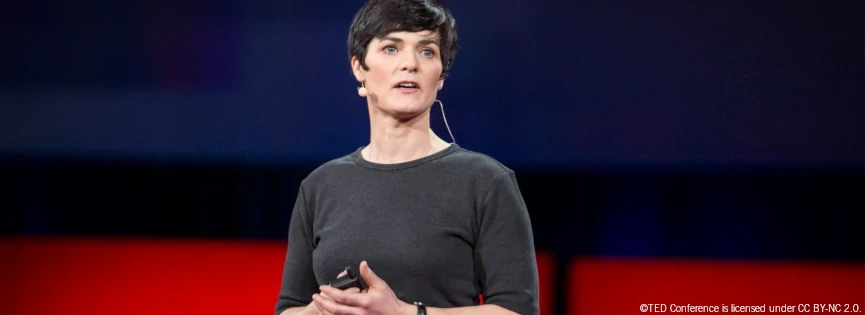Main content
Ellen MacArthur 2022 Princess of Asturias Award for International Cooperation

I am truly honoured to be here.
500 years ago this year, Spaniard Juan Sebastian Elcano sailed the ship Victoria into Seville completing the first ever circumnavigation of the world. It has been called ‘The most important maritime voyage ever taken’.
From the age of four, to sail around the world was my dream…
Just over 20 years ago, my dream came true. I sailed around the world alone for the first time in a race called the Vendee Globe.
Four years later, I did it again, on a trimaran, and I broke the world record.
Your country was the very first to do this. So you see it is truly an honour to be here in Spain, this year, this evening, with you.
I vividly remember what I wrote in my logbook whilst out at sea alone…
“What I have on this boat is all I have. There is no more.”
I knew then that if my fuel, water, or food ran out, my journey would end. It was success or failure, life or death. I was totally reliant on my limited resources.
That boat was my finite world.
But as I left my boat after 71 days, it hit me. Our world is no different. Our world is our boat – and it too has finite resources.
Yet we behave – and operate our economy – as if our resources will never run out.
We take something from the ground, we make something out of it, and then we throw it away; we take, make, waste – it is a linear economy.
It’s an economic system based upon extraction, massive waste and pollution, and thus, the destruction of ecosystems and nature. The damage is all around us and can no longer be ignored.
But surely in this day and age, we can do better than that? What if that straight line is made into a circle?
Rather than taking, making and wasting, we design out waste and pollution, we keep products and materials in use for as long as possible and we regenerate nature.
Then, it’s an economy that doesn’t run out. It harnesses innovation and creativity and builds long term economic growth whilst making the world a better place…
This is not mere theory. The opportunity of a circular economy is being increasingly adopted world-wide by business leaders and policymakers, and to that very point - Spain - you - are amongst the front-runners of this global transition having adopted it in your 2030 Circular Plan.
One of the most striking examples of the failure of a linear economy is plastic.
Plastic has revolutionised many aspects of our lives.
It is everywhere because it is so useful.
But it is everywhere - in many cases, where it should not be.
Why would we, today, make anything that we know would become waste?
Millions of tonnes of this plastic waste leak into the environment every day - and that is why, seven years ago, we, at the Foundation, chose plastics as a key area to tackle.
This is a HUGE challenge as true Systemic Change is needed – meaning that participation will have to come from all sectors. Businesses and their designers and marketeers, material managers, financiers, policy makers and consumers all over the world will need to play a role.
The good news is that this really is starting to happen.
Companies are already investing billions of dollars on this transition, and governments, such as yours, are bringing in national plans.
But much more needs to be done. And here there is real hope.
Earlier this year, Spain joined other countries of the United Nations to negotiate a global treaty to tackle plastic pollution.
This is a once-in-a-generation opportunity.
The Foundation, working with the World Wildlife Fund, is supporting businesses and policymakers as these negotiations begin – pushing for the very highest levels of ambition.
The logic of a circular economy goes way beyond plastics. It is a much bigger agenda.
Focussing on the cause, rather than the symptoms, allows us to address some of our most pressing global challenges.
It’s about growing our biodiversity.
Regenerating our natural resources.
Fixing our climate…
What an achievement that would be, if we were the generation that allowed future ones to pass on a planet that is healthier.
One that has a thriving economy growing alongside nature, rather than against it.
If our ambition is matched with action, we can do this.
Just like your circumnavigation 500 years ago, you need a ‘first’ to inspire.
My thanks again to the jury for this award, and my eternal thanks to the team at the Ellen MacArthur Foundation without whom, none of this would have happened.
Thank you.
End of main content
